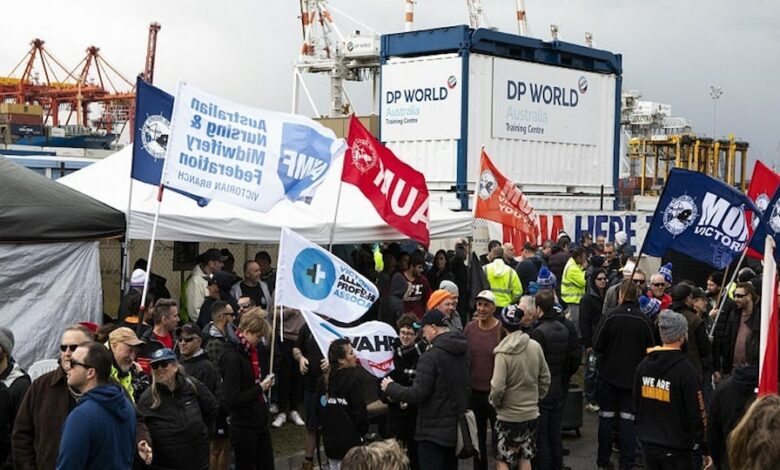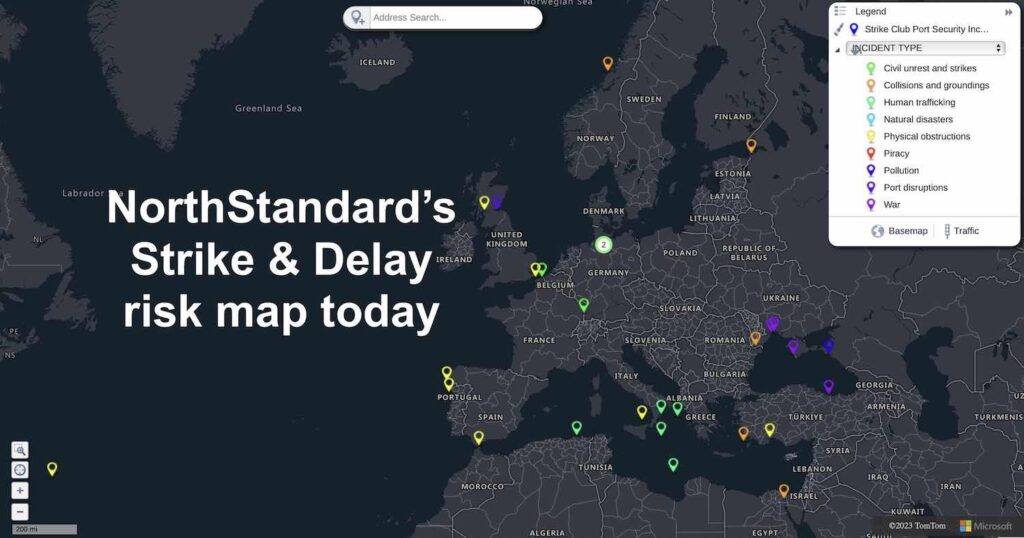Port strikes take their toll on supply chains and seafarers

The number of port strikes around the world has been growing over the past year, causing headaches for supply chain providers as well as distress for seafarers denied shore leave.
The number of protests and strikes affecting port operations quadrupled last year to 38 incidents, according to Crisis24, a maritime security consultancy. From trucker stoppages in South Korea to dock strikes in Britain, worker shortages have prompted shipping lines to divert or delay cargoes globally.
With the cost of living crisis affecting most nations, strikes at ports have proliferated in the opening months of 2023, especially across Europe.
P&I club NorthStandard carries a useful risk map detailing real-time port strikes worldwide.
Nick Rowe, NorthStandard’s head of strike & delay, told Splash that the cost of living crisis had come to a head with port strikes making headlines in the US, UK, France, Germany, Italy, Spain, Finland, Israel and Argentina already this year.
“The fundamental point is there is a global cost of living crisis,” Rowe said, adding: “Inflation has outstripped wages, and it has not been so stark for many years, and there is potential for labour unrest to disrupt ports in many places.”
Andy Lane, a partner at container advisory CTI Consultancy, said that port strikes always occur with minimal lead times.
“Cargo is already in the pipeline and therefore it will get disrupted, and delayed as a consequence. This is not good for consumers or exporters, or for inflation generally,” Lane said.
The ripples of the industrial action at quaysides on multiple continents are also being felt by the world’s 1.5m seafarers. After years of being kept at sea by covid, many seafarers are now being denied shore leave again by the rolling port strikes.
“As seafarers have emerged from the trials and tribulations of the pandemic, they have now seemingly sailed into a new storm, that of port strikes and industrial action,” commented Steven Jones, the compiler of the Seafarers Happiness Index.
Seafaring respondents to the latest happiness index survey have reported that shore leave issues and problems are returning, often exacerbated by closures and disputes.
“While seafarers support the rights of port workers and recognise the struggle for pay and conditions, it can cause serious implications where vessels are denied access, or when crews cannot get ashore,” Jones said.
Captain Soma Sundar, co-founder of Bigyellowfish Technologies, an Asian employee engagement platform, commented: “Although it may not be possible to eliminate events beyond our control, it is the industry’s responsibility to anticipate such challenges and proactively prioritise seafarers’ well-being and continued engagement during such times of crisis and uncertainty.”

